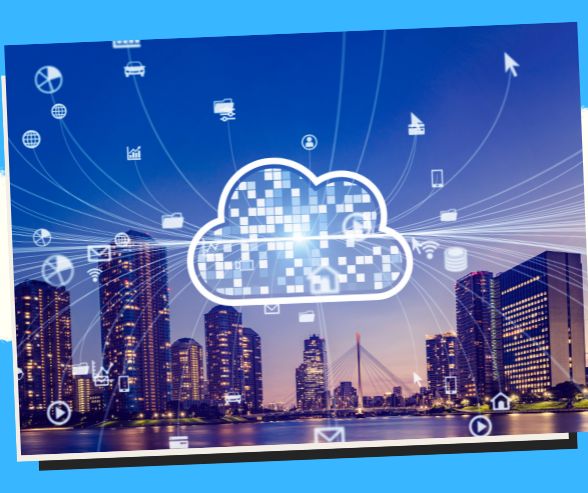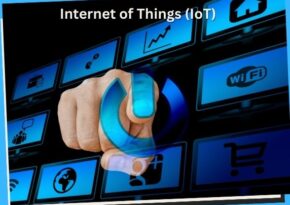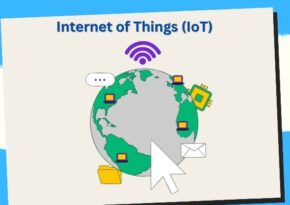
Revolutionizing Transportation: IoT-Powered Connected Cars! 

Driving the Future: Connected Vehicles and IoT Revolutionize Transportation 


The automotive industry is transforming profoundly, powered by the convergence of two technological marvels: connected vehicles and the Internet of Things (IoT). In this exciting era, our cars are no longer just modes of transportation; they are smart, data-driven machines that promise safer, more efficient, and enjoyable journeys. Welcome to the world of connected vehicles and IoT, where the road ahead is paved with innovation, convenience, and unprecedented possibilities.
Connected Vehicles: Beyond the Steering Wheel
Connected vehicles, often called “smart cars,” are automobiles equipped with internet connectivity, sensors, and electronic systems. In real-time, these connected cars can collect, process, and exchange data with other vehicles, infrastructure, and cloud-based platforms. The integration of IoT technology is at the heart of their intelligence.
1. Enhanced Safety and Driver Assistance
IoT-connected vehicles are making our roads safer by leveraging real-time data and advanced driver assistance systems:
- Collision Avoidance: IoT sensors can detect impending collisions and alert drivers or automatically apply the brakes to prevent accidents.
- Lane Keeping Assist: Connected vehicles use sensors to monitor lane markers and warn drivers if they drift out of their lane.
- Adaptive Cruise Control: IoT technology enables vehicles to adjust their speed and maintain a safe following distance based on traffic conditions.
- Emergency Services: In the event of an accident, connected cars can automatically notify emergency services, providing vital information about the location and severity of the incident.
2. Traffic Management and Navigation
Connected vehicles contribute to more efficient traffic management and navigation:
- Real-Time Traffic Data: IoT-connected cars share data on traffic conditions, helping drivers avoid congested routes and reduce travel time.
- Smart Parking: Drivers can find available parking spaces with the help of IoT-connected sensors in parking lots and streets.
- Dynamic Routing: Vehicles can receive real-time route adjustments based on traffic, road closures, and weather conditions.
3. Vehicle Diagnostics and Maintenance
Connected vehicles are equipped with IoT sensors that monitor vehicle health and enable predictive maintenance:
- Remote Diagnostics: IoT technology can identify and report vehicle issues, allowing for early diagnosis and timely maintenance.
- Automated Service Alerts: When it’s time for routine maintenance or repairs, connected cars can alert drivers and service centers.
- Efficient Fleet Management: IoT-connected vehicles can optimize routes and reduce downtime through predictive maintenance for commercial and logistics purposes.
4. Infotainment and Connectivity
Connected vehicles offer a plethora of entertainment and connectivity features:
- In-Car Wi-Fi: Passengers can stay connected to the internet while moving, making long journeys more enjoyable.
- Streaming Services: Drivers and passengers can access music, movies, and other entertainment options.
- Voice Control: IoT-powered voice assistants allow hands-free control of various functions, enhancing safety and convenience.
Benefits of Connected Vehicles and IoT
The integration of IoT technology in connected vehicles yields numerous benefits:
- Safety: IoT-connected vehicles offer advanced driver assistance and safety features, reducing accidents and fatalities on the road.
- Efficiency: Real-time traffic data and route optimization reduce fuel consumption and travel time.
- Maintenance: Predictive maintenance helps extend the lifespan of vehicles and reduces repair costs.
- Infotainment: Passengers can enjoy a more enjoyable and connected experience during their journeys.
- Environmental Impact: Improved traffic management and efficient routes contribute to reduced emissions and congestion.
Challenges and Considerations
While connected vehicles and IoT offer immense promise, several challenges must be addressed:
- Data Privacy and Security: IoT-connected vehicles collect sensitive data, making data security and privacy paramount.
- Interoperability: Ensuring compatibility and standardization among manufacturers’ IoT systems is essential.
- Reliability: IoT systems must be highly reliable to avoid system failures that could endanger drivers.
- Data Overload: The vast amount of data connected vehicles generate requires robust data management and analysis.
- Regulation and Standards: Governments and regulatory bodies must establish guidelines and standards for IoT-connected vehicles.
The Future of Connected Vehicles and IoT
The future of connected vehicles and IoT holds incredible potential:
- Autonomous Driving: IoT technology will be integral to developing and deploying self-driving cars.
- Smart Cities: As cities become more connected, vehicles will communicate with infrastructure to improve traffic flow and reduce congestion.
- Energy Efficiency: IoT-connected vehicles will contribute to more efficient energy use and reduced environmental impact.
- Remote Updates: Over-the-air updates will become commonplace, allowing manufacturers to improve vehicle functionality and security remotely.
- Ecosystem Growth: A thriving ecosystem of apps and services will evolve, enhancing the in-car experience.
Conclusion
Connected vehicles and IoT are driving us toward a new era of transportation—one that is safer, more efficient, and connected in ways we never thought possible. From enhancing road safety and traffic management to offering a plethora of entertainment options, integrating IoT technology in our cars is transforming how we drive and travel.
However, as with any transformative technology, security, privacy, interoperability, and regulation challenges must be addressed. Companies and governments that embrace these challenges and invest in IoT-connected vehicles are shaping the future of transportation and contributing to a smarter, more sustainable, and safer world on the road.
As IoT continues to evolve, the road ahead for connected vehicles promises to be an exciting journey, with innovation as the driver and a brighter and more connected future as the destination.
Related Queries
IoT’s role in connected vehicles
Revolutionizing transportation with IoT-powered cars
Connected vehicles and IoT for a smarter world
IoT’s impact on vehicle connectivity
Exploring IoT in connected vehicle data
Smart mobility with IoT in vehicle connectivity
Securing connected vehicles with IoT technology
Speeding up connected vehicles with IoT
IoT and auto maintenance for connected vehicles
Redefining vehicle navigation with IoT
Save/Share this story with QR CODE
Disclaimer
This article is for informational purposes only and does not constitute endorsement of any specific technologies or methodologies and financial advice or endorsement of any specific products or services.
 Need to get in touch?
Need to get in touch?

We appreciate your reading. 
1.) 

Your DONATION will be used to fund and maintain NEXTGENDAY.com
Subscribers in the Philippines can make donations to mobile number 0917 906 3081, thru GCash.
3.) 
4.) 
AFFILIATE PARTNERS

World Class Nutritional Supplements - Buy Highest Quality Products, Purest Most Healthy Ingredients, Direct to your Door! Up to 90% OFF.
Join LiveGood Today - A company created to satisfy the world's most demanding leaders and entrepreneurs, with the best compensation plan today.

 Business, Finance & Technology
Business, Finance & Technology











 5G is breaking through limits, thanks to Massive MIMO! […]
5G is breaking through limits, thanks to Massive MIMO! […]





